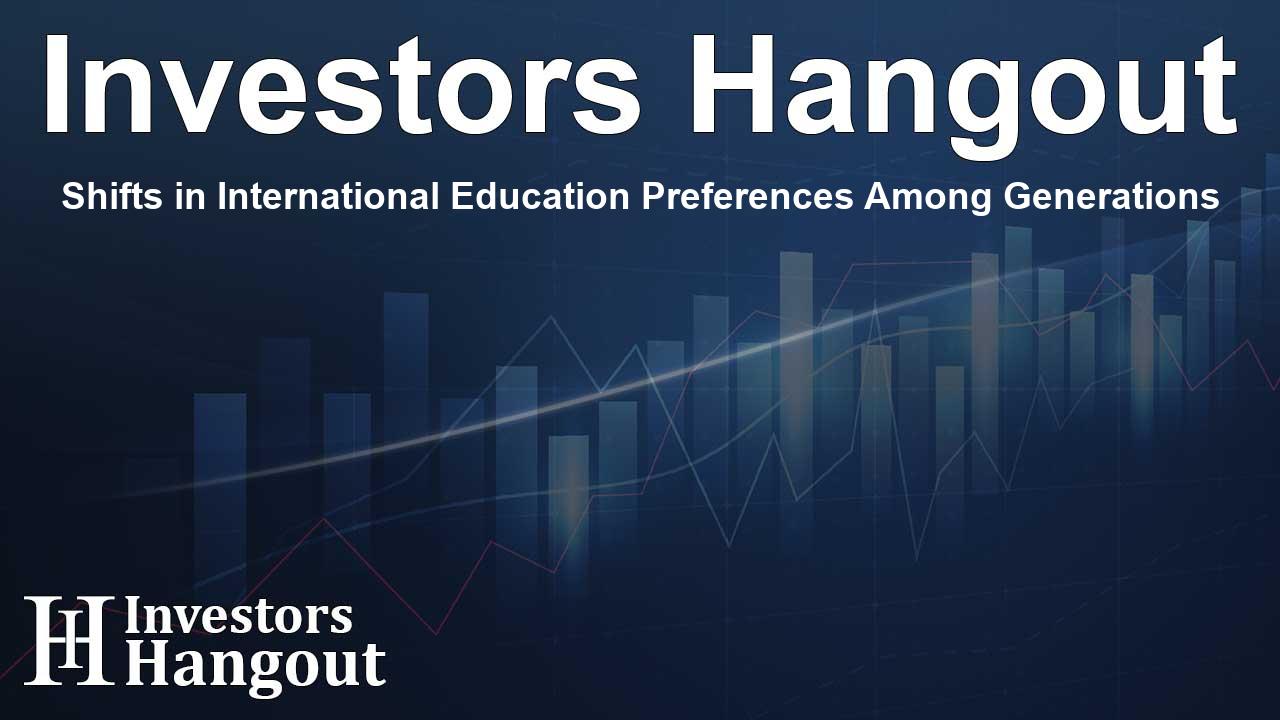Shifts in International Education Preferences Among Generations

Emerging Trends in International Education Choices
A new report by HSBC shows a notable generational divide in attitudes towards international education. As more affluent families explore options for their children’s academic futures, the preferences among younger generations are shifting significantly.
Survey Insights on Global Aspirations
The Quality of Life report from HSBC surveyed over 11,200 adults from various parts of the world. The findings suggest that while traditional study destinations like the US, UK, and Australia continue to hold appeal, younger generations, particularly Gen Z and Millennials, are now showing a stronger inclination towards educational institutions closer to home.
New Destinations Gaining Popularity
Among the emerging trends, several new regions are being recognized as top choices for international education:
- Many young Singaporean parents are looking towards mainland China as an attractive option for their children’s higher education.
- Conversely, Singapore is becoming increasingly popular among younger parents from China, India, Malaysia, and Taiwan.
- Parents from the UK are showing an increased interest in continental Europe for their children's education.
- Canadian institutions are gaining traction among parents from the United States.
Shifting Priorities Among Parents
Katie Wilkins, Global Head of International Propositions at HSBC, commented on this evolving trend, saying, "Younger parents are expressing a preference for balancing their child’s education with aspirations that remain regionally relevant. This contrasts starkly with the perspectives of older generations.” She emphasized that they are more likely to focus on both global opportunities and local comforts.
The Importance of Passion-Driven Choices
The report highlights that a significant 78% of parents would choose a university that allows their child to follow their passions. Millennials especially prioritize this, with 83% affirming they value their children's interests more compared to just 73% of Baby Boomers.
Moreover, Millennials also demonstrate a 15% greater inclination to support educational options that intrigue entrepreneurial pursuits, focusing on holistic well-being during their educational journey abroad.
Innovative Education in Demand
There is a strong demand for progressive educational methodologies among younger parents. The report highlights that 82% of Millennials and 77% of Gen Z respondents see innovative education as crucial, a stark contrast to only 30% of Boomers who feel the same way.
Additionally, 66% of parents believe that studying overseas will provide their children with valuable global exposure, enhancing their career prospects in the future.
Interactions with Technology and Education
Dr. Wanying Zhou from the University of Oxford noted the ongoing transformations occurring within the international education landscape. With rapid changes driving a diversification of options, families are actively exploring different avenues such as satellite campuses and online learning. These developments allow for educational flexibility, enabling students to remain close to home while pursuing their studies.
Dr. Zhou emphasizes that while studying abroad presents numerous benefits, it also entails challenges, and families should prepare accordingly to ensure a smooth transition into international education.
HSBC's Role in International Education
HSBC's extensive global network and tailored resources are designed to assist families in navigating the complexities of choosing an international education. As more families embark on this journey, HSBC’s support becomes invaluable in making informed decisions.
Frequently Asked Questions
What does the HSBC report reveal about education preferences?
The report highlights a generational divide, with younger parents favoring local educational options over traditional international destinations.
Which new study destinations are gaining popularity?
Mainland China, Singapore, continental Europe, and Canada are emerging as appealing options for younger parents seeking international education for their children.
How do parents' attitudes vary by generation?
Millennials and Gen Z increasingly prioritize innovative education and their children's passions compared to Baby Boomers, who show a more traditional approach.
What challenges do families face when considering international education?
Challenges include navigating a complex array of choices and ensuring that the education aligns with children's interests and future aspirations.
How does HSBC support families in the education journey?
HSBC offers a range of resources and financial services tailored to assist families in navigating international education effectively.
About Investors Hangout
Investors Hangout is a leading online stock forum for financial discussion and learning, offering a wide range of free tools and resources. It draws in traders of all levels, who exchange market knowledge, investigate trading tactics, and keep an eye on industry developments in real time. Featuring financial articles, stock message boards, quotes, charts, company profiles, and live news updates. Through cooperative learning and a wealth of informational resources, it helps users from novices creating their first portfolios to experts honing their techniques. Join Investors Hangout today: https://investorshangout.com/
Disclaimer: The content of this article is solely for general informational purposes only; it does not represent legal, financial, or investment advice. Investors Hangout does not offer financial advice; the author is not a licensed financial advisor. Consult a qualified advisor before making any financial or investment decisions based on this article. The author's interpretation of publicly available data shapes the opinions presented here; as a result, they should not be taken as advice to purchase, sell, or hold any securities mentioned or any other investments. The author does not guarantee the accuracy, completeness, or timeliness of any material, providing it "as is." Information and market conditions may change; past performance is not indicative of future outcomes. If any of the material offered here is inaccurate, please contact us for corrections.